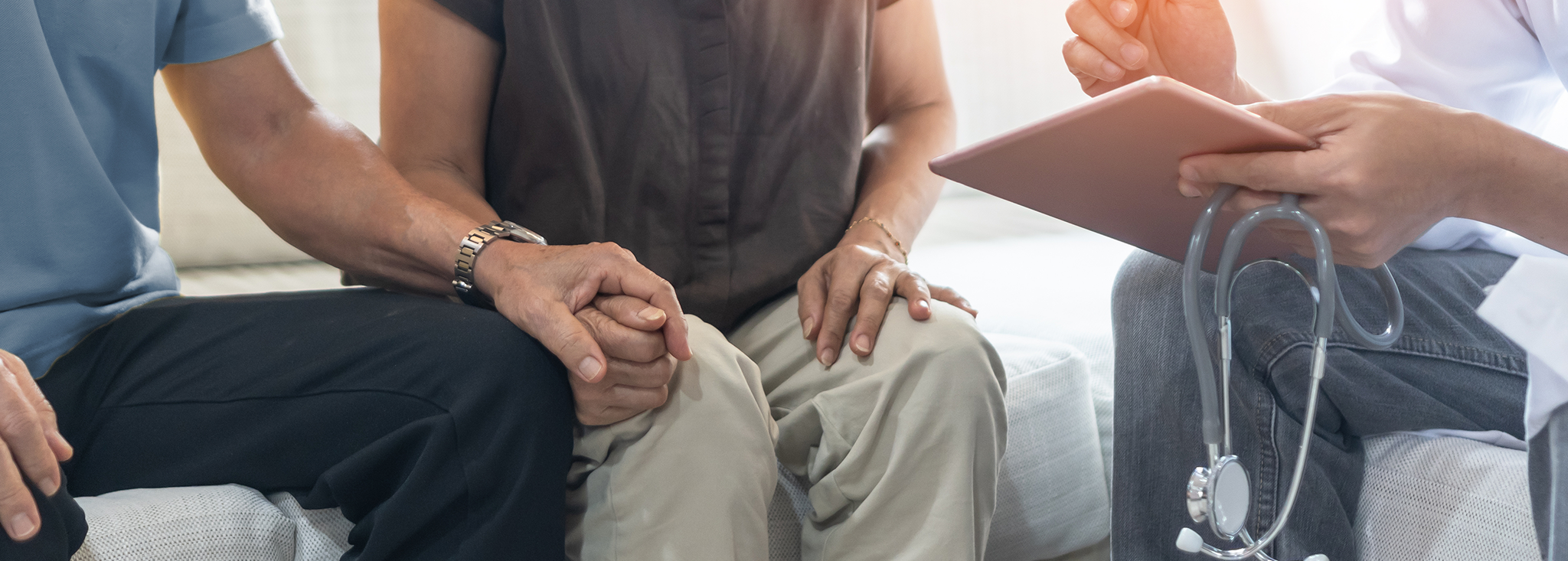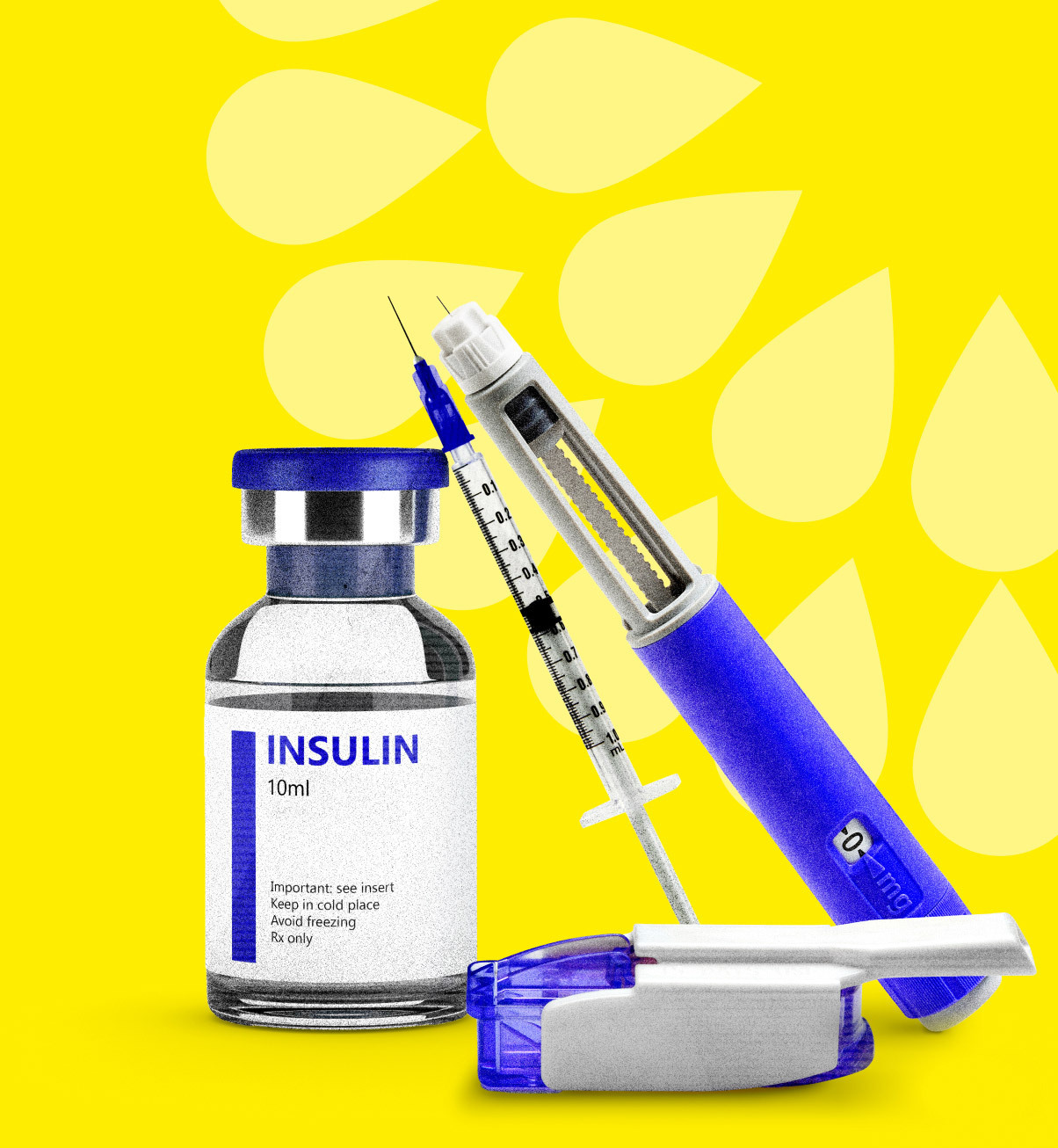Insulin Access in a Pandemic: An Interview with Wade Neucks of Lilly Diabetes
Written by: Todd Boudreaux
7 minute read
March 26, 2020
Beyond Type 1 chatted with Wade Neucks of Lilly Diabetes about expectations of insulin access in the midst of the COVID-19 pandemic.
Editor’s Note: For many of us living with diabetes, there is concern about how COVID-19 will affect the production of diabetes supplies and medications, including insulin. Our parent organization, Beyond Type 1, is communicating closely with diabetes drug and device manufacturers and providing regular updates on the Diabetes Supply Chain here.
Wade Neucks is the Director of the Patient Affordability Solutions Team at Lilly Diabetes. He recently took the time to answer questions about concerns of insulin access during COVID-19. This interview was conducted on March 24 at 1pm Pacific Time. Watch the entire interview in full:
[bt1-youtube id=”nNSVaUlSYAU” type=”inline” image=”nNSVaUlSYAU”]
Partial transcript below, edited for content and clarity.
Can you talk about how the supply chain works?
Wade Neucks: It’s critical that folks understand a little bit more than they maybe used to and to really feel as confident as we do about the supply of insulin during this COVID-19 outbreak. When you get into like the super nitty gritty details, it gets really, really complicated. From the big picture view, it’s actually a lot of the same way that you go to a store and buy shoes or a refrigerator, or anything you pick up in a retail setting. When it comes to Lilly insulins, we manufacture them and then twice a week, every week, we fill up trucks that go to wholesalers. Those wholesalers have really big national warehouses. They load up from those big national warehouses and they drive trucks to the regional or more local warehouses. Those local warehouses are the folks who keep insulin on the shelf in the pharmacy. And the process of going from a regional warehouse to a pharmacy in your neighborhood is one to two days.
Typically, the whole process can be as short as five days. We have a couple of wholesalers that are really close to us. Some of the wholesalers that are a little farther away, maybe 10 days to two weeks. But that’s why they all have these regional warehouses, because you’ve got to have medicine that gets to people quickly.
In press releases on March 3rd and March 24th, Lilly said that there should be no disruption to the insulin supply chain – how are you sure that you’ll be able to continue to produce insulin during this pandemic?
So there is a lot of uncertainty, right? And I think that a lot of people are going to say that they’re uncertain even about what different companies are promising to them during this time. But I can tell you that personally, for myself as well as from the company, we are very, very certain. And right now we do not anticipate any disruption in our ability to make your insulin. And the reason that we’re confident with that is because very early on, I know we were one of the first in Indianapolis, but I do believe we were also one of the first across the country that made the socially responsible choice to close down.
The reason that we did that is because on a normal day, when I drive into work, I get to work in the building where our insulin is manufactured. But in an effort to keep that manufacturing site sterile and not recklessly expose our manufacturing colleagues to this virus, we made the tough choice to do a couple things. One was everybody find a way to work from home. The second was we restricted all travel. Other things that Lilly’s doing kind of on the COVID-19 front is we partnered with a company who was one of the first boots on the ground in developing a vaccine and we’re hopeful that that’s going to help out a ton. The other thing that we’re doing is as of today, we have started a drive-through testing facility for healthcare professionals to get free COVID-19 testing, because that really allows us and our community to keep those heroes right on the front lines, helping patients where they need to be.
Hypothetically, if everybody in the United States ordered a three-month supply of Lilly insulin all at once, would there still be enough?
To answer your question directly, it would not cause a shortage of insulin, but it would cause some local pharmacies to be out of stock and maybe even some of those regional warehouses to need to restock from the big national warehouse… Let’s say that everybody went in and tried to order three months instead of one month. Well, obviously the first couple of people in line are going to be able to do that. The rest are going to have to wait one to two days and it’ll be in kind of one to two-day phases as insulin gets out back on the shelf in your local pharmacy. And if you let the system work, it’s designed to work for you. I think some of the places that are running into more issues is when your healthcare professional or yourself don’t give the pharmacy a head’s up that you’re going to be picking up additional insulin. So if that’s the case for you, have your doctor write the prescription, send it into the pharmacy and give the system a day or two to react.
We are having people report that sometimes their pharmacies are out of insulin. Can you explain how this happens and how long somebody might need to wait?
You guys have been hearing it from your community members, Lilly has heard and responded to a couple of requests specifically where pharmacies are saying that Lilly insulin is on backorder or the manufacturer is out of stock. We did address this in the press release, but just to be clear and so everybody hears it out loud, there is not a single Lilly insulin that is on backorder and there is not a single Lilly insulin that we are out of stock of.
Let’s pretend I’m a pharmacist in your neighborhood pharmacy, and because my system has been checking in and it knows who fills and how often they fill, it knows that I’m going to have five people who are supposed to come in and fill their 30-day insulin supply today.
So a couple of days ago, the computer ordered enough insulin for all five of the folks and whatever they needed for the month. Customer one comes in and says, “Hey, I’m here to pick up my 30-day supply.” Go to the fridge, it’s on the shelf. Customer two comes in and says, “I normally pick up a 30-day supply, but I’m actually going to pick up 90 days today.” The pharmacist goes to the fridge, he has plenty of stock on the shelf, gives all 90 days to customer number two. Customer three comes in, “I’m here for my regular 30-day supply.” The pharmacist goes to the fridge, it’s on the shelf, not a problem. The difference is going to be what customers four and five are going to hear when they say, “I’m here to pick up my 30-day supply.” The pharmacist is going to say, “Oh, I’m temporarily out of stock of insulin. It’s going to take one to two days for me to get it in. We’ll give you a call when it’s full.”
The reason that they would say the one to two days is because they’re never going to over-promise on that. So it could be on a truck that could be there in hours or a day, but they’re going to tell you it’s going to be one to two days. The other thing that’s happening is that awesome game of telephone. So somebody hears, “We’re temporarily out of stock, I’m going to order it,” then it becomes, “Well the pharmacy is out of stock” and you hear it in a couple of different places because this is happening regionally. And then it turns into, “Manufacturers are running out of stock of insulin” which is not the case at all.
So from the time your pharmacy tells you, “We’re out of stock, we need to reorder,” it should be a maximum of one to two days – is there any reason why it might take longer?
The only reason why it could take longer is if this were happening to a critical mass of pharmacies that are all based out of one regional warehouse. But again, remember it doesn’t take a pharmacist to actually place every single order. So as inventory starts to go down, all of the computer systems are talking, and by the time that regional warehouse would likely be out of stock, there’s already trucks on the way to make sure that there’s more insulin there.
What kinds of resources is Lilly going to be providing to those people who are maybe having a harder time or just recently for the first time ever having a hard time getting ahold of their insulin?
It’s a big concern and it’s a concern that Lilly’s been focused on insulin affordability for several years now. So we have a lot of solutions that are currently out there in the marketplace. I know that there’s some extra concern because of the pandemic, but you don’t need the excuse of the pandemic, if you can’t afford one of your Lilly insulins, please call the Lilly Diabetes Solution Center.
Editor’s Note: You can call the Lilly Diabetes Solution Center at (833) 808-1234, Monday through Friday, 9 a.m. to 8 p.m. Eastern time.
It truly is one of the only ways that we can help because when you reach out to us, we can understand your circumstance. We’re going to have a live rep walk you through which solutions are the best for you. We have solutions for commercial patients, we have solutions for uninsured, we have solutions for folks who are in Part D. We can get you connected with Lilly Cares to see if you qualify and we can also connect you to one of the 100s of clinics we partner with across the country.
It’s not just if you qualify for getting free Lilly insulin, this also helps you get your supplies and access to social workers and also discounted rates on healthcare providers, making sure that you’re taking your insulin the right way to keep you as healthy as possible. So please call. If you’re currently on a solution and it’s for your commercial insurance and you’ve recently lost your job for whatever reason, whether it’s because of COVID-19 or seasonality of employment, things like that, it doesn’t mean that those aren’t going to work for you anymore. It just means we need to find the solution that’s most appropriate for your current situation.
Is there anything separate that you’d recommend for our community members outside the United States or a place we can direct them to?
Anyone can call the Lilly Answers Center [1-800-545-5979] and they can triage to the most appropriate resource. Different countries are going to have different programs set up and obviously different federal poverty levels and things like that. Anyone who’s in the United States or any of the territories (Puerto Rico, Guam, etc), it’s the Lilly Diabetes Solution Center—give us a call.
Is there anything else that you or Lilly Diabetes would like to say to the diabetes community at this time?
The quick bullets to it are: one—your health and safety are of utmost importance. And if what you need to do to stay healthy as directed by your doctor as to pick up additional quantities, have your doctor put that prescription in the system and let the system react and work for you. It’ll happen in as little as one to two days. The second piece is whether you pick up on a 30-day cycle or a 90-day cycle, please be confident. We are confident that we will have Lilly insulin manufactured and available to your pharmacy at whatever schedule you decided to pick it up. We’re here, we’re confident and we’re making your insulin 24 hours a day.
Editors’ Note: The following affordability options were provided by Lilly and are being included here at their request
- Reducing out-of-pocket costs: For people with commercial insurance or the uninsured, the out-of-pocket cost for a monthly prescription of most Lilly insulins at the retail pharmacy should be about $100. If your out-of-pocket cost is higher than $100, call the Lilly Diabetes Solution Center (833-808-1234.)
- Insulins with lower list prices: A lower-priced version (at a 50% discount) of Humalog U-100 is available and can be ordered through pharmacies within one to two business days, if not already available at pharmacies.
- Immediate supply: If you have an unavoidable urgent need for Lilly insulin, you may qualify for an immediate solution. Call the Lilly Diabetes Solution Center to learn more.
- Donated insulin: Donated Lilly insulins are stocked at nearly 200 free clinics nationwide.
- Lilly Cares Foundation: A separate non-profit organization that provides free Lilly insulin for eligible patients. Learn more about the eligibility criteria at lillycares.com.

Author
Todd Boudreaux
Todd was diagnosed with type 1 diabetes in 2000, and has been unofficially advocating for T1D ever since. Before joining the team at Beyond Type 1, Todd wrote and produced television shows for Discovery Channel, Travel Channel and Animal Planet. When he’s not in the office, you can usually find him at a baseball game, traveling, or drawing on his Etch A Sketch. You can also follow him on Instagram.
Related Resources

We know nobody likes to talk or read about complications, however, managing your diabetes will...
Read more

I was diagnosed with type 1 diabetes (T1D) in 2014 at age 23. Like half...
Read more

For a lot of people with type 2 diabetes, living with it can be more...
Read more

